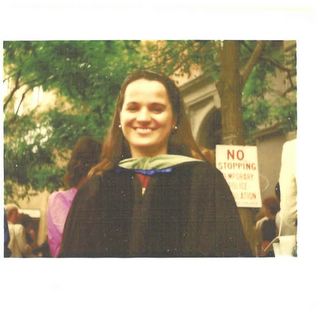"The Exorcism of Emily Rose" explores questions about evil and the nature of God
In this excellent review, John Zmirak praises "The Exorcism of Emily Rose" for not giving (or even attempting to give) pat answers to such age-old questions as "What is the nature of God and the nature of evil?" In answering such questions, he applauds the film for presenting in a fair and even-handed way, "forensically the clash between contemporary scientific humanism and spiritual warfare." High praise indeed. Not many films can successfully or entertainingly even broach such topics let alone present them, as he says, "impartially, with men of each tradition speaking cogently and persuasively for their points of view--including the priest."WHAT HAPPENED TO EMILY?
'The Exorcism of Emily Rose' is a well-crafted, creepy film that explores profound questions about the nature of God. Does He exist? Do you really want to know?
By John Zmirak
Looking for a feel-good movie this weekend? Something for grown-ups that addresses the everyday crises and disappointments of life, but ends with a warm, suffusing sense that all is well, and every problem, if honestly faced by a genuinely good-looking protagonist, can be solved within 120 minutes? Then this is not the movie for you. Go see Wedding Crashers instead.
The film raises and addresses profound questions about the nature of evil but doesn’t pretend to answer them. The Exorcism of Emily Rose is the kind of movie that disturbs while it entertains. The film depicts (employing poetic license) the possessed by six demons and was approved for exorcism by her local diocese. The exorcism was protracted, horrific, and futile. She died of malnutrition, and the priest in charge was prosecuted for criminal neglect.
The film is a courtroom drama centered on the trial, suffused with flashbacks to apparently preternatural, and profoundly disturbing events. The protagonist is the priest's lawyer (played by the ever-brilliant Laura Linney), a cynical agnostic driven by ambition, hired by a shame-faced diocese to hush the whole thing up. But the priest (portrayed by the compelling Tom Wilkinson), refuses to cop a plea—insisting that he must take the stand and "tell Emily Rose's story. That's what she wanted." The prosecutor, a dour Protestant (played with silk and steel rectitude by Campbell Scott), brings an army of expert witnesses to try to prove that Emily had a diagnosed, treatable psychiatric condition—"psychotic epilepsy"—which the priest culpably ignored in favor of exorcism. Thus the film presents forensically the clash between contemporary scientific humanism and spiritual warfare. The contest is presented impartially, with men of each tradition speaking cogently and persuasively for their points of view—including the priest. As the director said, "It really was one of my goals to present a Catholic priest as a character with dignity and respect. I think Catholics and priests are such easy fodder for stereotype and vilification. I wanted to create character you couldn't help but respect for his passion and integrity."
more...

